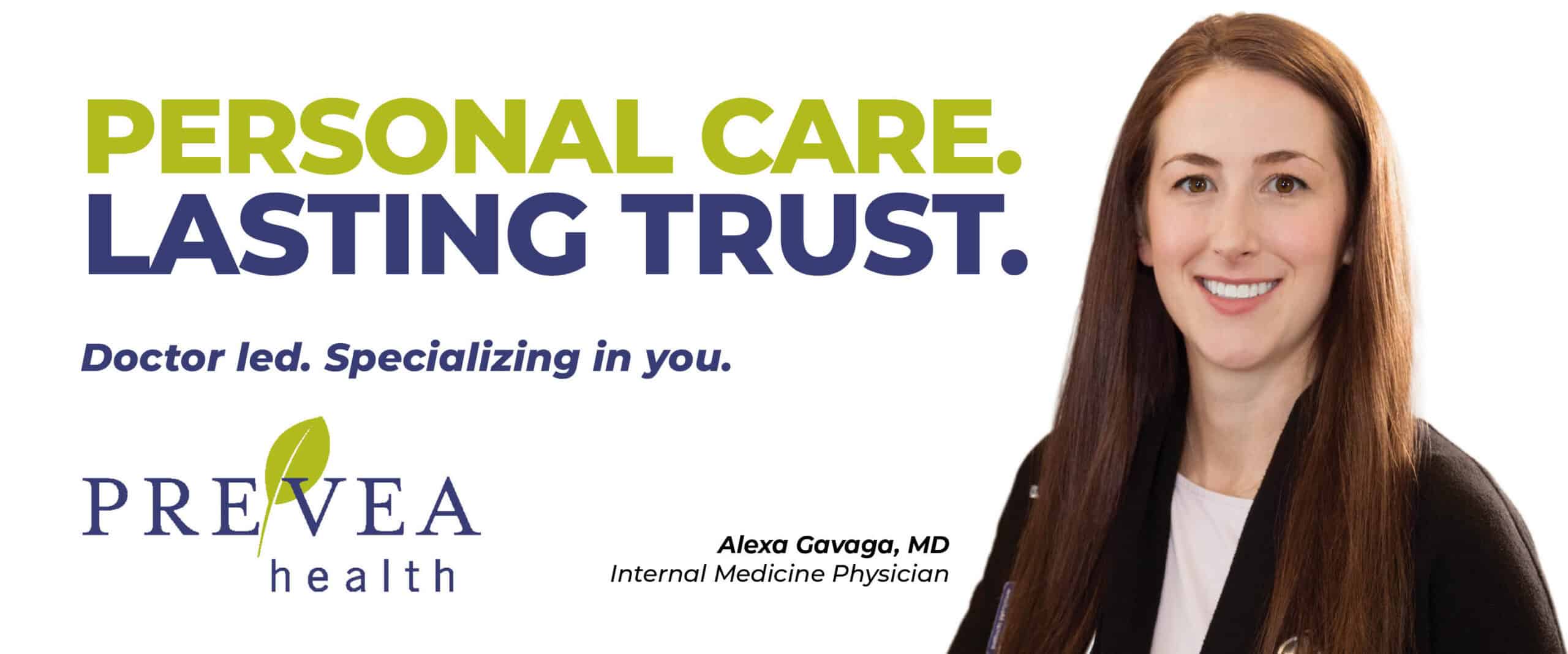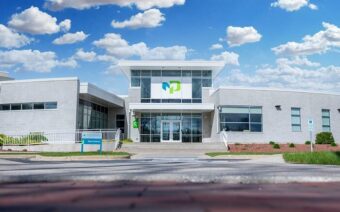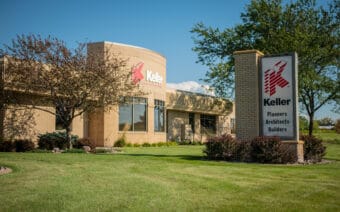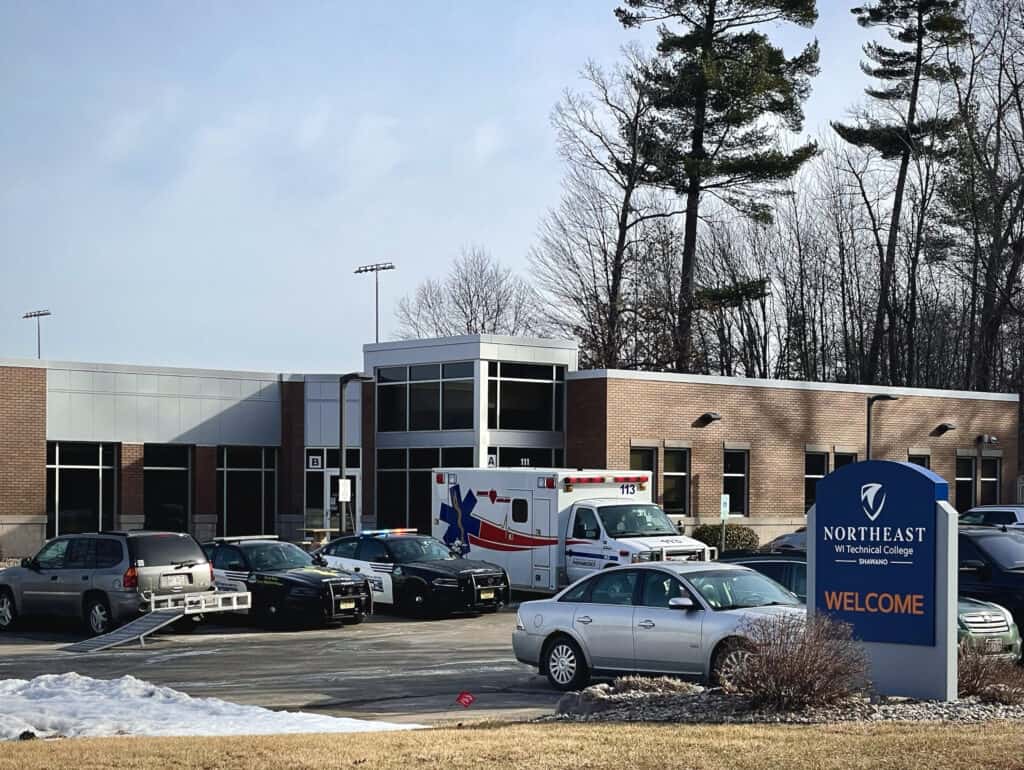
March 24, 2025
SHAWANO – A partnership considered critical in helping fill growing workforce gaps in rural healthcare systems is working to expose students to all the career opportunities offered within the medical field.
Brian Krogh – interim dean of health sciences with Northeast Wisconsin Technical College (NWTC) – said the college and ThedaCare have a long-standing relationship in their shared mission to train, attract and retain healthcare talent in Shawano.
“We really need to partner together to make sure we get students in the pipeline from high school into whatever career they’re looking for in health care,” he said.
Kellie Diedrick – vice president of critical access hospitals for ThedaCare – said rural areas like Shawano are especially feeling the impact of healthcare workforce gaps.
“There is a shortage of healthcare professionals,” she said. “I know it’s been talked about, probably ad nauseam, but it’s real, and we feel it particularly in rural communities.”
Recently, to help combat this issue, NWTC and ThedaCare held a joint event at NWTC’s Shawano Learning Center – bringing in area high school students to explore all the available options regarding a career in health care.
Early exposure
Krogh said one of the key ways NWTC and ThedaCare attract and retain talent to rural hospitals is by exposing local students – as early as middle school – to healthcare career opportunities.
“If you can start in middle school and at least expose students to different careers that are out there, that really gets them interested in maybe a (healthcare) pathway,” he said. “Then, I think, as we get into high school, that’s when we start narrowing down… the careers that are out there and get them exposed to maybe some (job) shadowing, or something in a facility to see (if) there is a specific area that they like.”
As a healthcare employer, Diedrick said ThedaCare is “finding more and more” that if it has a presence in schools, the health system has a better chance at attracting local talent.
“We do struggle a bit more for recruitment, frankly, because we have less of a population to draw from,” she said. “So, when you’re looking at these very highly skilled roles – things like physical therapists, nurses, physicians – encouraging those folks out of school to come and want to live and work in a rural community can be incredibly challenging.”
Diedrick said ThedaCare has identified that “people tend to come back to what they know.”
“So if we can inspire and encourage young people today – from Shawano and the surrounding communities – to be interested in health care, learn about NWTC and learn about ThedaCare, Shawano specifically…,” she said, “we find they can go to school, and they often come back to where they live and what they know. They can have a really fulfilling healthcare career right here locally.”
The key to regular access to local schools, Diedrick said, lies in ThedaCare’s partnership with NWTC.
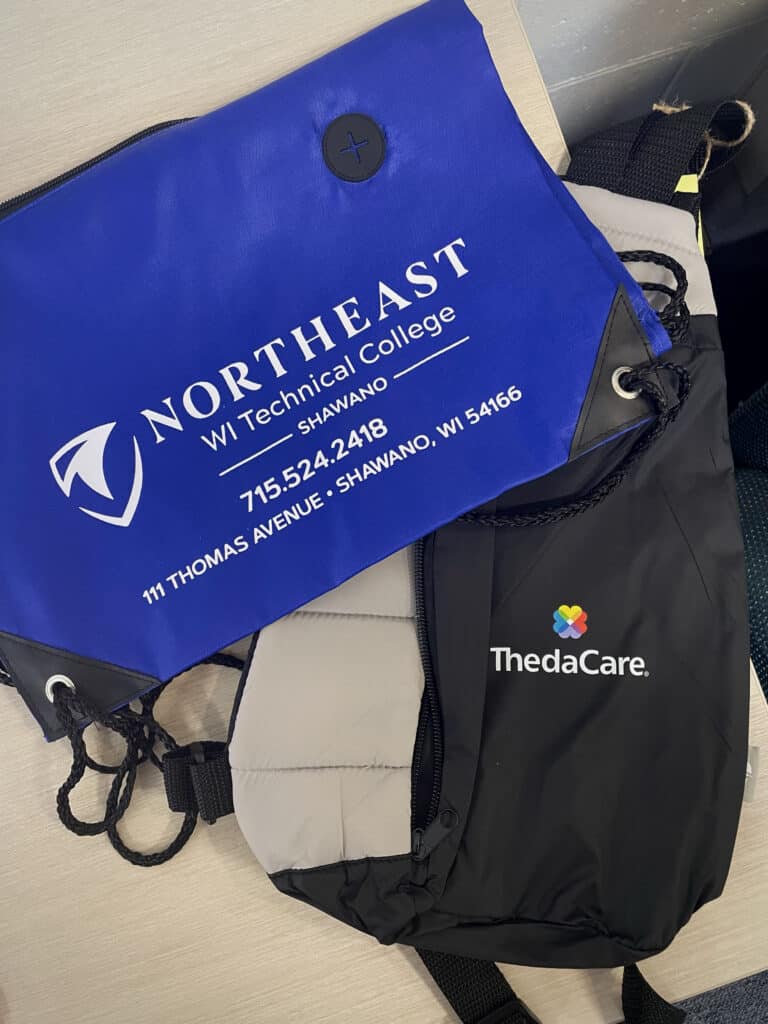
“We are in the high schools,” Krogh said. “We work very closely with them on transcribe credit and dual credit, so students can be working on that in high school. We have nursing assistant classes within high schools within our district, and we have a footprint for those students so we can help them on a career pathway.”
The need for nurses
Krogh said under the healthcare discipline, NWTC offers classes for a wide-variety of degrees, certifications and programs.
“We have the associate’s degree, which is an RN (registered nurse); the practical nursing program, which is an LPN (licensed practical nurse); (and) of course (a) nursing assistant (program),” he said. “We (also) have a dental program – dental assistant (and) dental hygiene. We have radiography. We have diagnostic medical sonography, echocardiography, physical therapy, assistant respiratory therapy (and) therapeutic massage.”
Krogh said NWTC determines which programs to offer based on the needs of the communities where the technical college operates.
“Typically, it starts off with a really deep search into what is needed within our community, then working with our partners to see if this is a career that’s really emerging that we need in our area,” he said. “That’s when we start working on programming and then starting a program at NWTC that would fit the needs of the community.”
One area of health care both Diedrick and Krogh said is of particular need for additional workforce is nursing.
“Nursing is something that we’re really focused on, because there’s such a critical shortage,” Krogh said. “And within 10 or 20 years, it’s only going to get worse.”
Diedrick said health systems across the country are lacking nurses due to an industry-wide exodus following the COVID-19 pandemic.
“We knew we had shortages years ago… but post-COVID, a lot of people left the workforce for many reasons, and now we have to catch up,” she said.
What makes the nursing shortage especially challenging, Diedrick said, is that “nurses are needed everywhere.”
“They’re needed in schools, they’re needed in hospitals, they’re needed in clinics (and) they’re needed to teach other nurses,” she said. “So we’re all competing for this small pool of people that go into this profession. So, we have to get to kids early and encourage them to get into that field.”
Talent retention
Encouraging students to pursue a career in nursing, or health care as a whole, is one challenge, Diedrick said, but another is retaining that talent.
ThedaCare Medical Center-Shawano, she said, is currently fully staffed – a major change the hospital has seen in recent years.
“I could tell you three years ago, we weren’t (fully staffed),” she said. “ThedaCare is really a great employer. It’s a great place to work. We’re involved and invested in our community, and I think people (who) come and work for us enjoy coming and working for us.”
Diedrick said one advantage the ThedaCare Medical Center in Shawano has over other locations is its in-house education center – the first in the state – made possible through its partnership with NWTC.
“Because NWTC is right there on our campus, our nurse leaders can get in there and they can talk to the kids,” she said. “We have (the kids) come walk through all of our different departments. They see and experience the culture and, frankly, the demand. The last four hires we had were because somebody told someone in this community to come work for us, and so they want to do that.”
Especially among younger generations, Diedrick said potential employees are looking for numerous things from their employer – like a work-life balance and leadership that supports them as people, not just employees.
“When people leave jobs, they leave their leaders,” she said. “We really do work to make sure people feel like they (are supported)… We listen to what people want, we adapt and we make them feel important, listened to and heard.”
Diedrick said there is “an amazing, fun (and) committed leadership team” at ThedaCare Medical Center-Shawano, which assists them in retaining the talent they recruit there.
“All of our leaders are like that,” she said. “We’re open, we’re available, we’re committed, we’re here. It really feels different.”
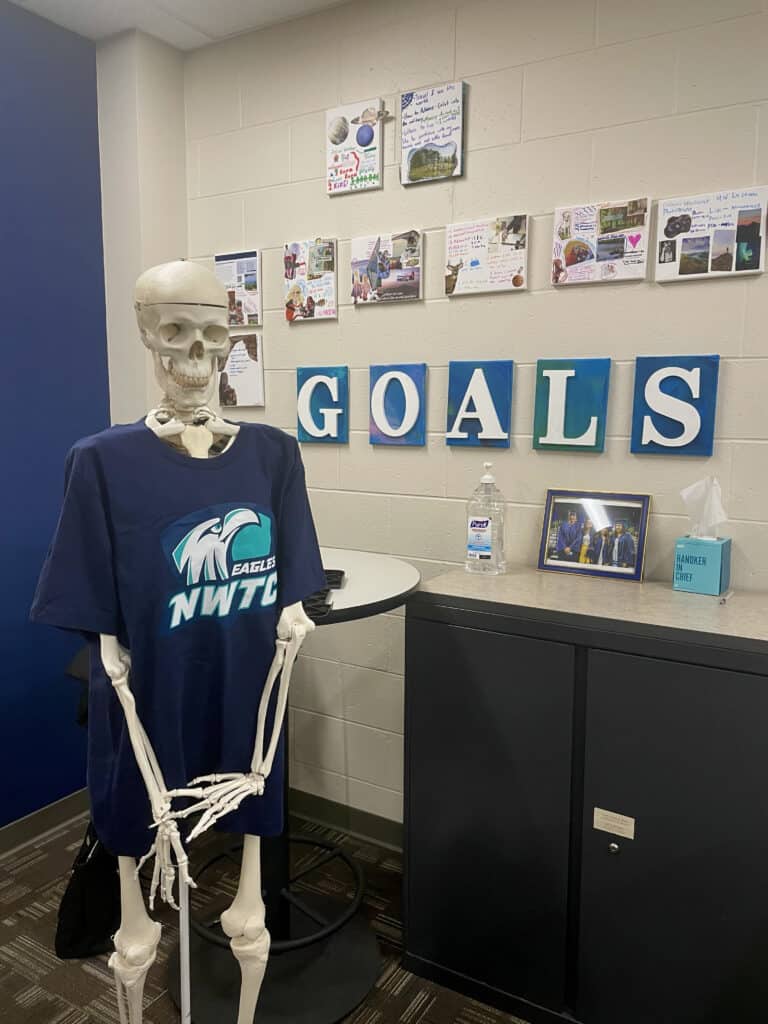
Growth opportunities, Diedrick said, are also important to the younger talent ThedaCare is seeking to attract.
“These 20 something year olds that are coming into the workforce have a very different mindset than my parents did – the Boomer generation, if you will – where they work for one company and stay forever,” she said. “That is not (the case anymore), and I think we have to learn to adapt to that.”
Employers demonstrating commitment to the growth of the people they hire, Diedrick said, is an important shift in workforce expectations ThedaCare is not immune to.
“If we bring in someone (for) an entry level role, and we have them for one, two, three years, we have to figure out a way now for them to say, ‘I like working here so much, (but) I may not want to be in this role, (so) how can I graduate to the next level?’” she said. “(Offering) career ladders, education (or) tuition assistance (are) things that we can do so that what we call PCTs, which are patient care techs – (a) basic, entry-level nursing type role – can graduate to LPN, can graduate to RN, can get their masters (or) can be a nurse practitioner.”
Investing in employee development is something Diedrick said ThedaCare has taken very seriously in order to ensure its clinics and hospitals are fully staffed.
“We want them to understand they can have a career with us at ThedaCare,” she said. “So we’re adapting and changing and having those conversations earlier on, so kids can understand, frankly, that we’re committed to them if they want to come work for us.”
Diedrick said “so far, in Shawano,” ThedaCare has been able to “recruit several nurses” – adding that people are starting to approach them looking for a job.
“We’re actually having people call us saying, ‘We know you don’t have a job posted, (but) we want to come work there (because) we hear great things,’” she said.
Critical partnerships
ThedaCare’s partnership with NWTC, Krogh said, is “critical” to establishing a pipeline between schools and healthcare employers.
“There’s just such a shortage in health care,” he said. “We’re so tight and close with those communities that we really work with each county (to identify) what their needs are, how we can help support them and what we can do to get resources to them, as far as employees that they may need. So, it’s really that outreach and just that collaboration.”
Now more than ever, Diedrick said employers are learning that “more and more kids are choosing not to go to four-year colleges right out of high school.”
“So if we can get to them now, teach them what NWTC has here locally (and) have them be within the walls of our facility, they could go right from that schooling into gainful employment at ThedaCare,” she said. “It’s a pretty unique concept.”
Diedrick said that concept is working so well between ThedaCare Medical Center-Shawano and NWTC that they are now looking at how they can expand it across other rural communities surrounding Shawano.
“It’s really been our pipeline of success,” she said. “Frankly, in the Shawano community, we’re doing it so well, now… we are figuring out a way to… bring them in and potentially build ourselves a float pool and maybe float them to some of our other rural campuses… (We’re asking,) ‘How can we figure out a way to utilize this strength, and help create that pipeline for all of ThedaCare?’”
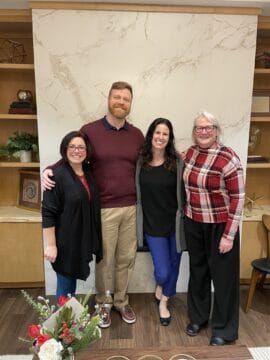 Willow Creek Women’s Clinic announces merger with OakLeaf Clinics
Willow Creek Women’s Clinic announces merger with OakLeaf Clinics CornerStone One expands into Northeast Wisconsin
CornerStone One expands into Northeast Wisconsin

